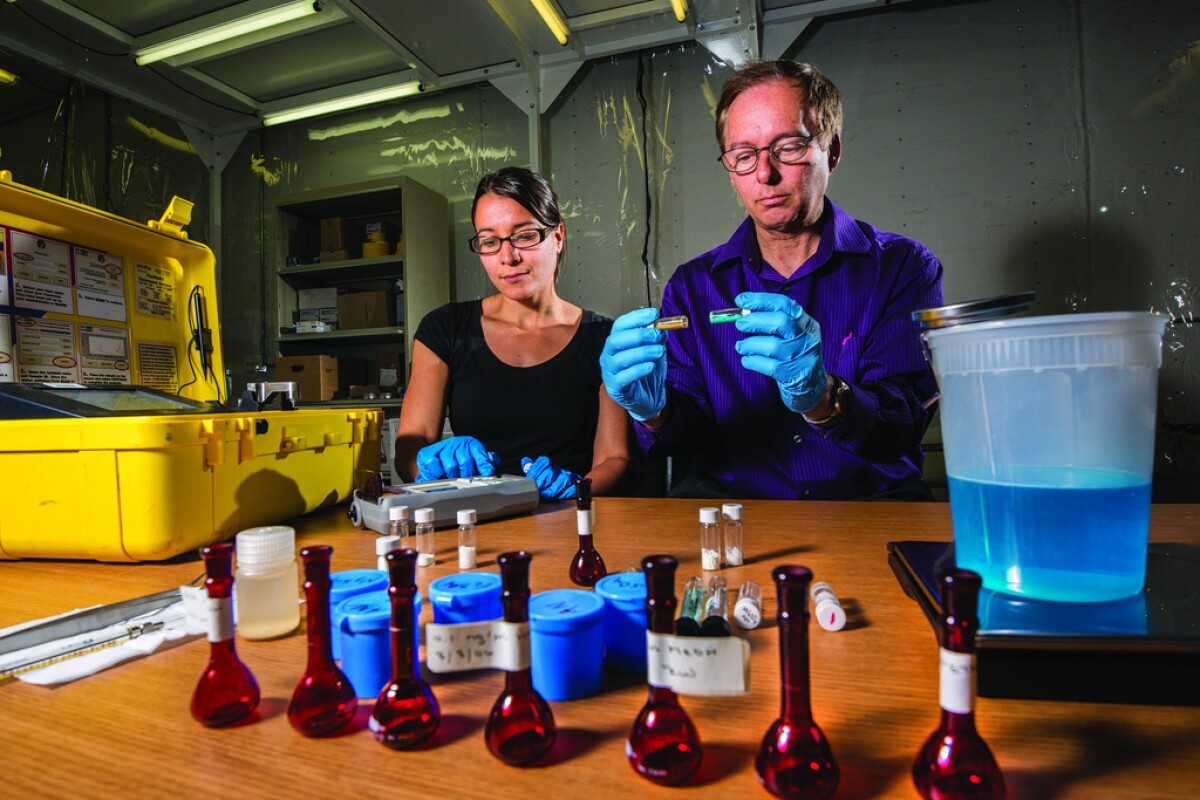Ammonium nitrate is a commonly used fertilizer, but when mixed with a fuel such as diesel, it makes a powerful explosive – as seen in last week’s fertilizer plant explosion in Texas. But it's the deliberate use of the compound in improvised explosive devices (IEDs) and acts of terror such as the Oklahoma City bombing that gives rise to even greater cause for concern. This is why Kevin Fleming, an optical engineer at Sandia National Laboratories, developed a fertilizer alternative that isn’t detonable and therefore can’t be used in a bomb.
The use of ammonium nitrate in IEDs is so widespread that the Joint Improvised Explosive Device Defeat Organization (JIEDDO) last year put out a call for ideas on ways to neutralize ammonium nitrate as an IED explosive. It’s a difficult task because its legal use is so common. Even though ammonium nitrate fertilizer is illegal in Afghanistan for example, it is easily sourced from neighboring Pakistan, where agriculture accounts for a quarter of the country’s gross domestic product.
Fleming, who retired from Sandia Labs in February, thought he had the right combination of knowledge and experience to tackle the problem. After years training soldiers in how to deal with IEDs, he knew the chemistry behind them. From the age of eight he also gained organic gardening experience dealing with calcareous soils similar to those found in the Middle East at his family’s five-acre property in Las Cruces, New Mexico.
Knowing that in ammonium nitrate the ammonium ion is weakly attracted to the nitrate ion, and that the right chemical reaction can pull them apart, Fleming decided to look for a compound they would rather cling to that could be added to the ammonium nitrate. He tried several materials, including iron sulfate, a readily available compound discarded by the ton from steel foundries.
If someone attempts to alter the ammonium nitrate/iron sulfate mixture to make it detonable by mixing it with fuel, the iron ion takes the nitrate ion and the ammonium ion takes the sulfate ion. The result is that the iron sulfate becomes iron nitrate and the ammonium nitrate becomes ammonium sulfate, neither of which is detonable.
But the new compound wouldn’t be much use if it weren’t also a good fertilizer. Thankfully, it is. In fact, the addition of iron sulfate to the mix makes the new fertilizer even better than ammonium nitrate for alkaline soils. These are what is found in Afghanistan, where a mix of ammonium nitrate and calcium carbonate is currently used, making the soil more alkaline.
“It takes alkaline soil and makes it more neutral, closer to an ideal pH level,” said Fleming of his non-detonable fertilizer. “The closer you get a neutral pH, the more crops grow. Crop yield would improve significantly. And iron-containing fertilizer added to the soil would be taken up in crops and help fight anemia and other iron deficiencies in people who eat them.”
Although Fleming says the non-detonable fertilizer would cost no more to produce than ammonium nitrate, he knows that it will take some time for the former to replace the latter in Afghanistan and other parts of the world given the sheer volume of ammonium nitrate production. However, he does have some ideas on how to get the ball rolling.
“We could give the formula to a neutral party and let them work with the Afghans, Pakistanis and others,” he said. “They could set up side-by-side demonstrations to see which fertilizer works better. Prove it to them gradually.”
Fleming has informed JIEDDO of the non-detonable fertilizer and, in the hopes of saving lives, Sandia isn’t licensing or patenting the formula but is making it freely available.
Source: Sandia Labs




